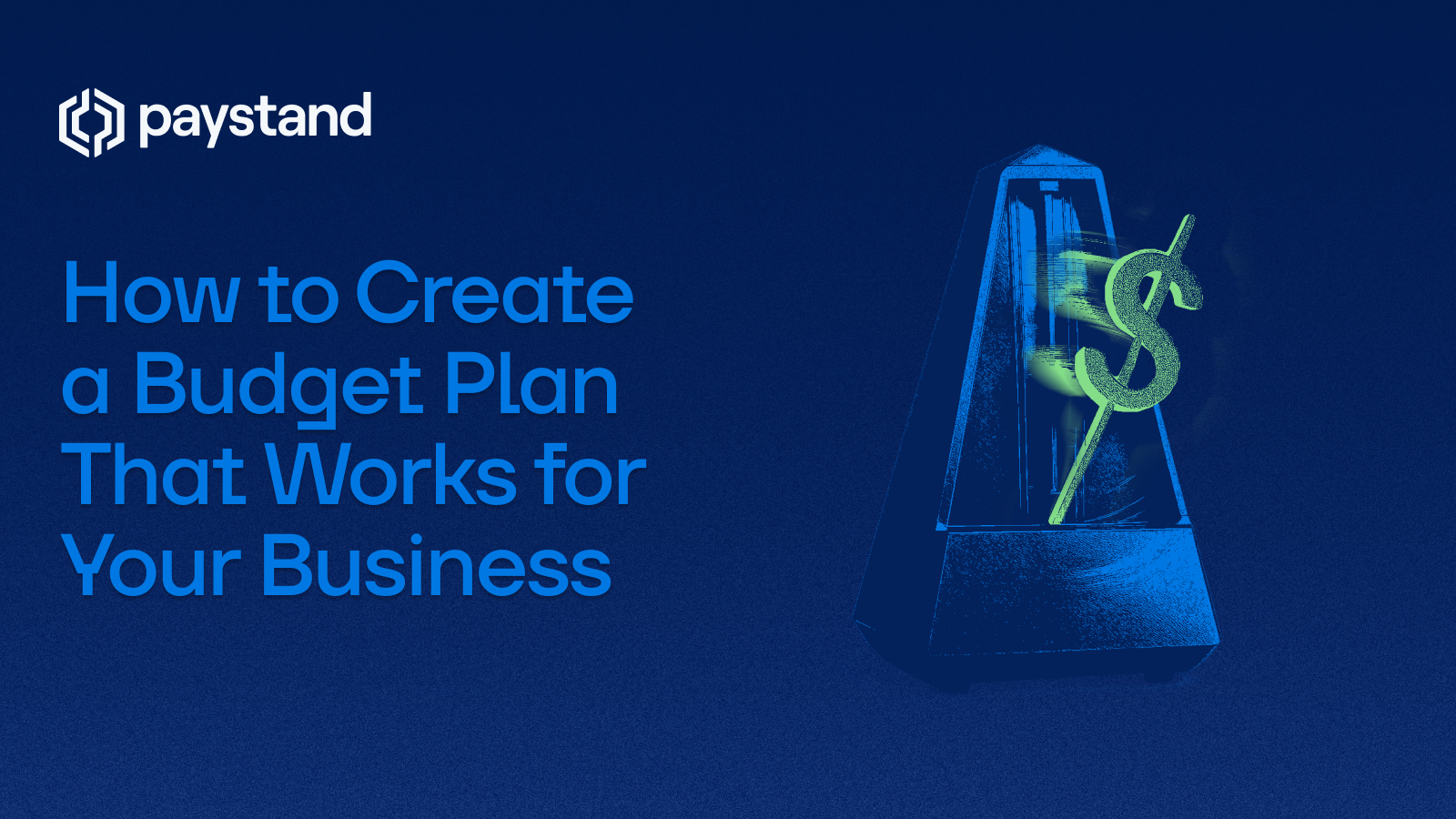How to Create a Budget Plan That Works for Your Business

Table of Contents
- What Is a Business Budget Plan—and Why It Matters
- How to Create a Budget Plan
- Business vs. Personal Budget Plans
- The Benefits of a Budget Plan for a Business
Key Takeaways
- A budget plan is the foundation of sound financial management, ensuring clarity around income, expenses, and investment decisions.
- Businesses benefit most from proactive, flexible budgeting that adapts to growth and changing markets.
- Regular reviews of your monthly income and spending keep your organization on track and stress-free.
- Aligning your budget with your payment strategy enhances financial control and transparency.
- Understanding how you spend your money—and why—is the key to sustainable growth and smarter decision-making.
Every successful year begins with a plan, and in finance, that plan starts with a budget. Whether you’re running a small business or leading a growing enterprise, a budget plan is the foundation that helps you manage your monthly income, control spending, and make intentional decisions about how to spend your money.
A budget plan is more than a spreadsheet; it’s a financial story about where your business is today and where you want it to go. It tracks how revenue comes in, how expenses go out, and what’s left to invest in growth. Most importantly, it helps transform uncertainty into action, turning every dollar into a strategic move instead of a reactive one.
When finance teams build thoughtful budgets, they don’t just balance numbers; they balance confidence and control. A solid plan reduces stress across departments, supports smarter decision-making, and prevents the all-too-common cycle of overspending and cash-flow surprises. For more on aligning financial systems with growth, explore our guide to business financial management.
What Is a Business Budget Plan—and Why It Matters
A business budget plan is a structured projection of your company’s revenue, costs, and investments over time. It’s your financial compass—helping you understand where your monthly income comes from, how to allocate it effectively, and where to tighten or expand spending as you grow.
Having a budget plan is essential because it turns financial goals into actionable strategies. It helps teams prioritize what matters most, maintain control over expenses, and create a predictable path for growth. And when things change—as they always do—a solid plan helps you adapt quickly instead of scrambling.
How to Create a Budget Plan
The best budget plans start with clarity. Before forecasting numbers, take time to understand your financial priorities and how they connect to your long-term strategy.
Start by identifying your monthly income and core expenses, both fixed (like payroll or rent) and variable (like marketing campaigns or travel). Then decide how you’ll spend your money to support business goals. Maybe that means reducing reliance on credit cards, investing in automation, or optimizing your payment strategy.
The key is to make budgeting an ongoing habit. Review your plan monthly, compare projections to actual results, and adjust when needed. The more consistently you track and fine-tune, the more precise your forecasts and your decisions become.
A good budget doesn’t limit your business; it empowers it. It ensures your financial plan matches your ambitions and that every expense moves you closer to your goals.
Business vs. Personal Budget Plans
While both business and personal budgets help manage income and expenses, their purpose and impact differ significantly.
A personal budget helps individuals stay on top of bills, savings, and lifestyle choices. It’s about balancing comfort and responsibility.
A business budget, however, goes deeper. It supports growth, operational planning, and strategic decision-making. It answers questions like:
- How much can we reinvest in product or talent?
- Where can we reduce overhead without hurting performance?
- Are we prepared for fluctuations in cash flow?
Both types of budgets are about control, knowing how much you earn, where it goes, and how to make smarter spending decisions. But for businesses, a budget plan also builds trust with investors, employees, and partners by showing you’re in command of your financial direction.
For more insight into managing finances responsibly, explore our guides on how credit cards work and key facts about credit cards.
The Benefits of a Budget Plan for a Business
A well-crafted budget plan gives you more than financial visibility; it gives you control. It reduces stress by providing a clear roadmap for decision-making, ensuring you’re never guessing where your money went or what’s coming next.
Budgeting also improves efficiency and foresight. It allows you to anticipate cash-flow challenges, prioritize essential expenses, and spot opportunities for cost reduction or reinvestment. Over time, this translates to healthier margins, greater agility, and more confident leadership.
In short, a business budget plan transforms finance from something reactive into something strategic—and that shift can make all the difference between surviving and scaling.
Ready to Strengthen Your Financial Strategy?
As you plan for the year ahead, think of your budget as a living, breathing document that keeps your business aligned and agile. For insights into where payments, automation, and budgeting are headed, download our free ebook: B2B Payment Trends for 2026








%20(1)%20(1).jpg?width=100&height=100&name=IMG_3752%20(1)%20(1)%20(1).jpg)